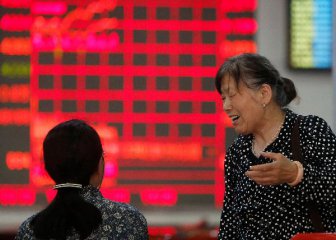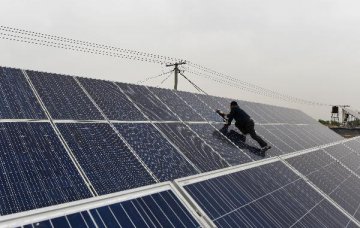
China, a key player of international investment and trade, has diversified its economic approach to emerging economies across Africa, South America and Asia, global economist Dambisa Moyo said.
"China's role has changed. Very early on, China's investments tended to be around infrastructure, ownership of a lot of natural resources. But in recent years, China's got a lot more involved in other areas, such as consumer goods, banking, logistics, obviously diversifying their approach in Africa and elsewhere across the emerging markets," Moyo told Xinhua in a recent phone interview.
Moyo attributed the change partly to the increasing demands from Africa for better governance and better participation in investment China's been making.
Moyo, the author of the 2009 bestseller Dead Aid named by the New York Times, was an outspoken critic of aid from the West to Africa in the past decades, which she said failed to deliver economic growth and poverty reduction but fueled corruption and the vicious cycle of dependency for aid in African countries.
In a chapter entitled "The Chinese are our friends," Moyo agreed with the Chinese approach to Africa by focusing on trade with and investment in Africa that resulted in infrastructure upgrade and jobs across the continent.
"In addition to FDI (foreign direct investment) and trade, China is also very much involved in providing loans and international aid," said the Zambia-born global economist who currently serves for several international companies or institutions.
"It is making a strong push through the Belt and Road Initiative, the New Development Bank and many other initiatives around the world. In terms of international influence in emerging markets, it continues to have a critical role," said Moyo, who also once worked for the World Bank and Goldman Sachs.
When commenting on China's economic development model, Moyo said it is clear that over the past 30 to 40 years, China has done a lot of things right by investing in infrastructure, education and goods and services for exports that helped fund a lot of local development in China.
"So far in terms of what it is doing in allocating capital into important areas it has done a good job, as education, infrastructure are very fundamental areas to spur growth," Moyo said.
China's opening-up has definitely helped drive economic growth in the country, Moyo said, adding that China has especially benefited from joining the WTO, being able to export a lot of goods and services around the world.
Recalling Chinese President Xi Jinping's speech about the importance of globalization and being open to trade at the World Economic Forum in 2017, Moyo said she believes in globalization, and that trade is a critical driver of economic growth and she hopes the United States and China can quickly resolve their trade disputes.
"Some of the great concerns people have about the Chinese economy is about whether it can continue the speed of economic growth," Moyo said.
The IMF and other institutions have recently downgraded global growth, including the growth in Europe and emerging economies, she said.
"Countries need to grow at least 7 percent a year in order to double per capita income in one generation. Obviously China is not growing at that rate and most countries are not growing at that rate, which is a concern for the global economy. The fact that China is growing at 6.5 percent is actually very good on a relative basis," she said.
Moyo noted the Chinese government has repeatedly highlighted the restructuring of its economy to transform it from being export-led towards domestic consumption-driven.
To further improve its business environment for foreign investment, China can increase transparency, consistency of rules, taxes and regulation, and most importantly ensure a good macro environment, said Moyo.
"If people feel like there is a continual good policy that can drive economic growth and they can continue to build on the middle class and China's success, that is also good news. And people feel much more comfortable about investing in China," she said.
























Latest comments